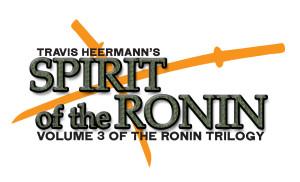 “Examine love always, and binding,” was what Jack Ketchum told our Odyssey Writing Workshop class in the summer of 2009.
“Examine love always, and binding,” was what Jack Ketchum told our Odyssey Writing Workshop class in the summer of 2009.
This may still be some of the best writing advice I’ve ever gotten.
If you don’t know Jack Ketchum, he’s best known as a horror writer, author of the The Girl Next Door (one of the most harrowing novels I’ve ever encountered). All of Ketchum’s monsters are the human kind, because they are more terrifying than any werewolf or vampire, for the simple fact that they could be living down the street.
The particular way that he made that statement above was intended to lodge in our brains. He had to explain a little so that we got the fullness of it.
In its quintessence, it means that love should be at the center of everything we write, but not necessarily in the romantic sense. Relationships coming together, coming apart. Love of life (or death, or some other obsession). Examining the bonds that hold us together, the bonds that come unraveled despite our best efforts, the bonds we cut. Pushing one’s characters to the limit, to see how far they will go to pursue, preserve, or shatter those bonds. Characters are driven by their connections to other characters.
In my own work, love is at the heart of my Ronin Trilogy, a historical fantasy story set in 13th-century Japan. A young, masterless samurai saves the life of a noble maiden, they fall in love, and their worlds are shattered again and again by this bond. She is betrothed to another. Our hero is cast out to wander again, penniless and bereft. When they encounter each other again in Book 3, the circumstances are as tragic and unavoidable as the love they share, a love that can never be consummated again–on pain of death.
Ketchum said something else that had a huge impact on me in his essay “Splat Goes the Hero: Visceral Horror,” published in the most excellent handbook On Writing Horror. He quoted one of my favorite film directors, Akira Kurosawa: “The role of the artist is to not look away.” In fact, we dare not flinch if we want our work to make an impact on the reader. When I read slush stories or critique stories from my writing group, what is often missing from mediocre stories is the deep-down pulsing heart, the passion, the pathos that really makes the reader care about what happens. The hard part about exploring this stuff is that to do so, we have to draw upon our own experiences, dredge up things that we don’t really want to feel again. We have to go there.
Revisiting all those old heartbreaks can be fodder for some truly visceral writing. It does give me a modicum of satisfaction when I draw upon personal experience for my fiction and I get to turn what might have been really negative experiences into a published story. I can rewrite bits and pieces of my own history, perhaps by saying the right thing this time, or finding closure with a woman who broke my heart into a million pieces, or just harnessing some unrequited love and floating it out into the universe on a bed of fiction. But again, I have to be willing to go there. I have to constantly ask myself in every story, have I flinched? Have I looked away at the last moment to avoid the deepest, darkest heart of the story?
Examining love always, and binding, is the heart of being an artist, of creating authentically.
All of us here at the Fictorians are independent artists and we hope that you will support our efforts by buying our work. The way publishing is changing, it is more important than ever that people directly support the artists and authors they enjoy.
This month, I am asking for help in bringing a story fifteen years in the making to an exciting, epic conclusion. I am running a Kickstarter campaign from now until February 24, 2015, to fund the publication of Book 3 in my Ronin Trilogy, Spirit of the Ronin. Please visit the campaign on Kickstarter here and consider supporting it.
